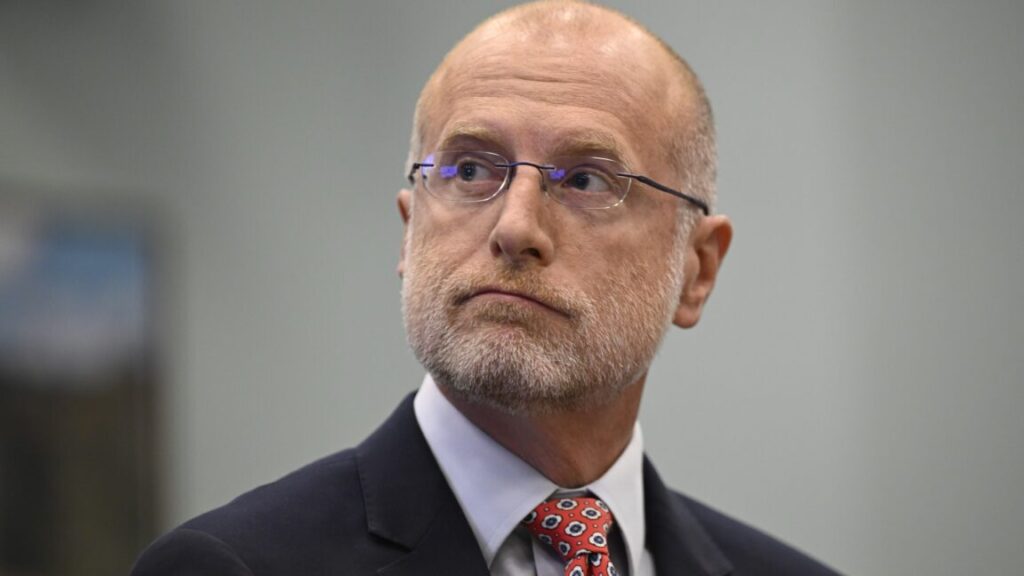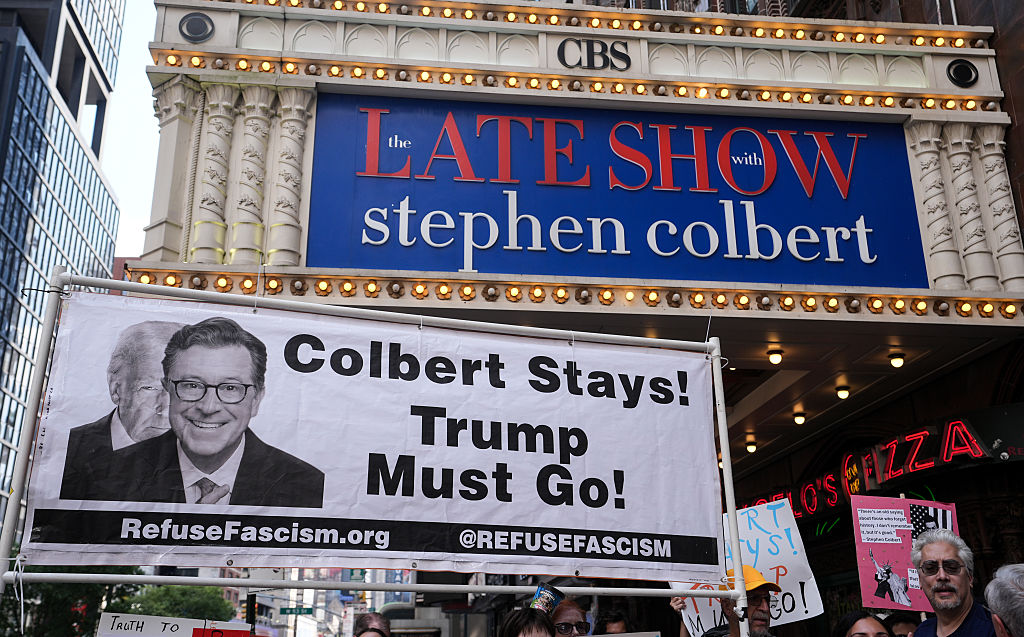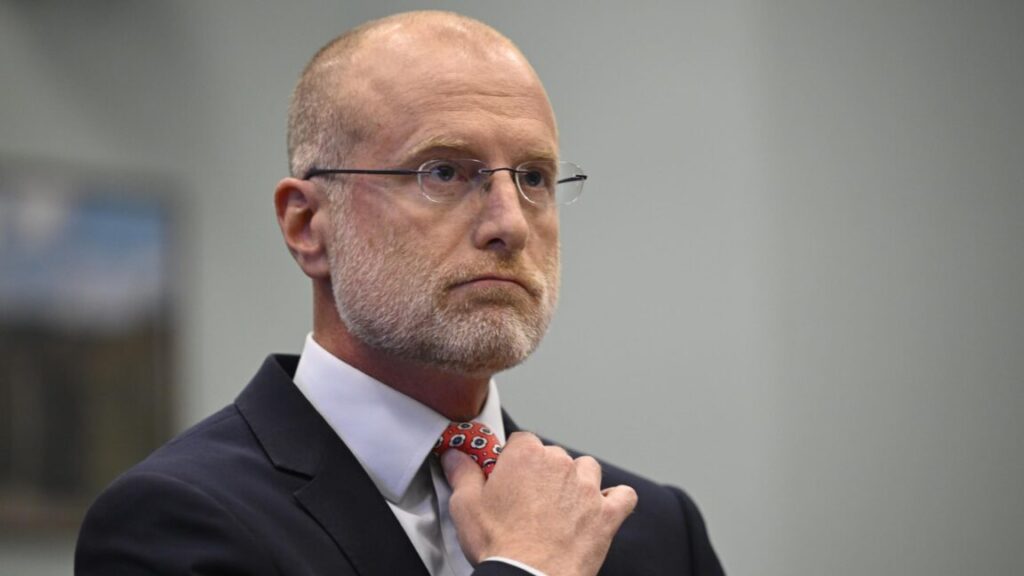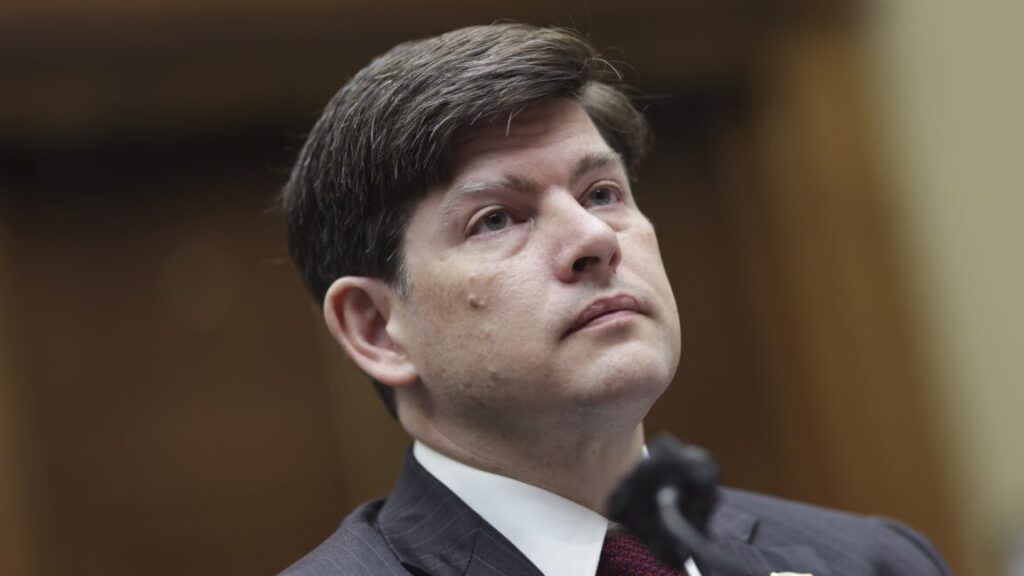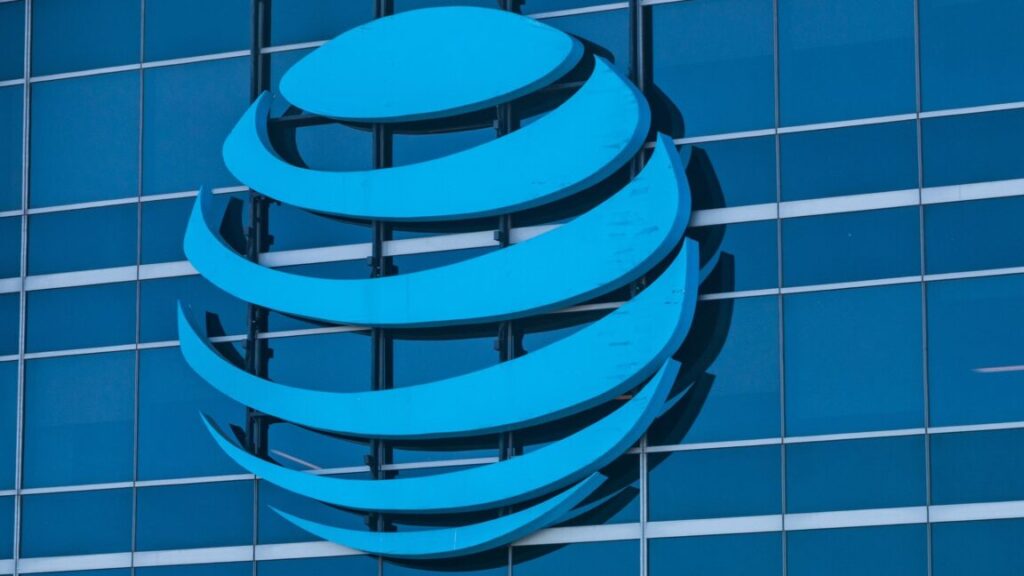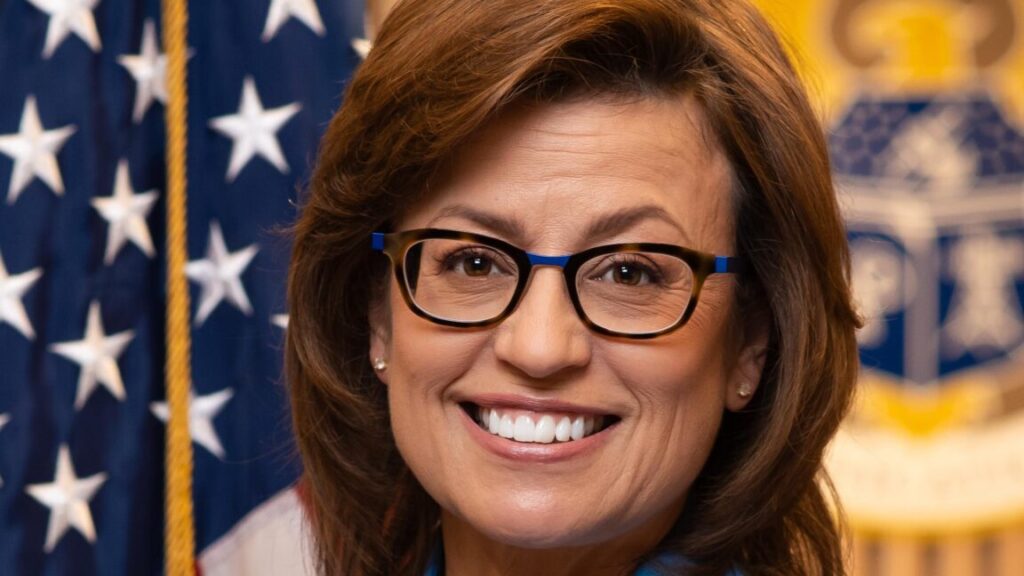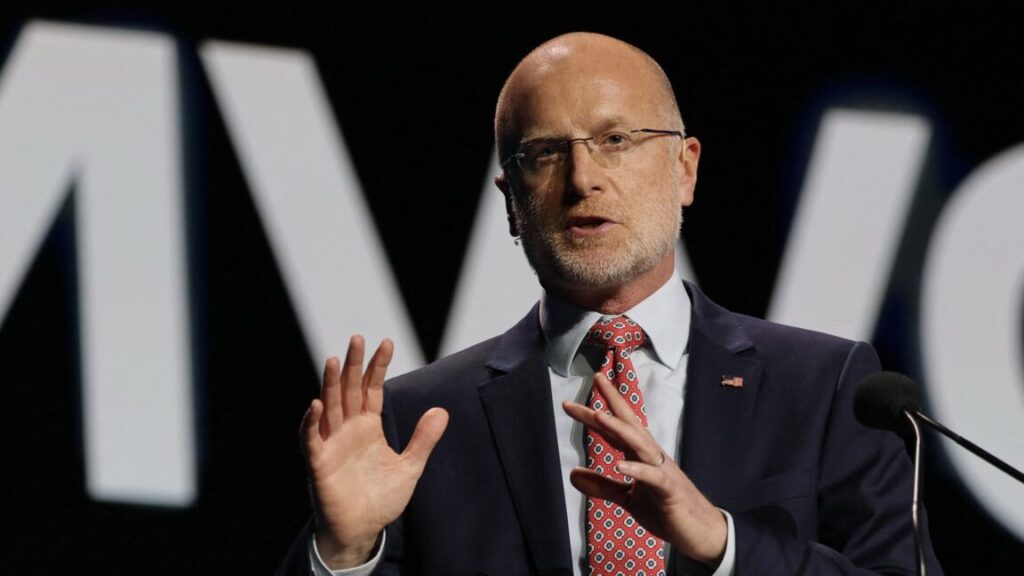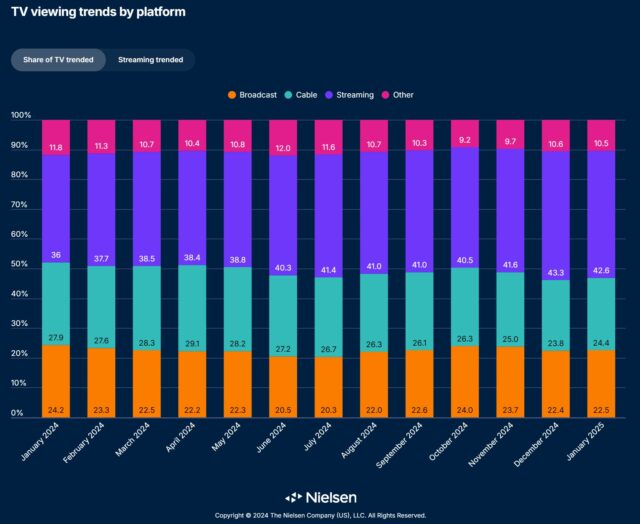Delete, Delete, Delete: How FCC Republicans are killing rules faster than ever
FCC speeds up rule-cutting, giving public as little as 10 days to file objections.
FCC Chairman Brendan Carr testifies before the House Appropriations Subcommittee on Financial Services and General Government on May 21, 2025 in Washington, DC. Credit: Getty Images | John McDonnell
The Federal Communications Commission’s Republican chairman is eliminating regulations at breakneck speed by using a process that cuts dozens of rules at a time while giving the public only 10 or 20 days to review each proposal and submit objections.
Chairman Brendan Carr started his “Delete, Delete, Delete” rule-cutting initiative in March and later announced he’d be using the Direct Final Rule (DFR) mechanism to eliminate regulations without a full public-comment period. Direct Final Rule is just one of several mechanisms the FCC is using in the Delete, Delete, Delete initiative. But despite the seeming obscurity of regulations deleted under Direct Final Rule so far, many observers are concerned that the process could easily be abused to eliminate more significant rules that protect consumers.
On July 24, the FCC removed what it called “11 outdated and useless rule provisions” related to telegraphs, rabbit-ear broadcast receivers, and phone booths. The FCC said the 11 provisions consist of “39 regulatory burdens, 7,194 words, and 16 pages.”
The FCC eliminated these rules without the “prior notice and comment” period typically used to comply with the US Administrative Procedure Act (APA), with the FCC finding that it had “good cause” to skip that step. The FCC said it would allow comment for 10 days and that rule eliminations would take effect automatically after the 10-day period unless the FCC concluded that it received “significant adverse comments.”
On August 7, the FCC again used Direct Final Rule to eliminate 98 rules and requirements imposed on broadcasters. This time, the FCC allowed 20 days for comment. But it maintained its stance that the rules would be deleted automatically at the end of the period if no “significant” comments were received.
By contrast, FCC rulemakings usually allow 30 days for initial comments and another 15 days for reply comments. The FCC then considers the comments, responds to the major issues raised, and drafts a final proposal that is put up for a commission vote. This process, which takes months and gives both the public and commissioners more opportunity to consider the changes, can apply both to the creation of new rules and the elimination of existing ones.
FCC’s lone Democrat warns of “Trojan horse”
Telecom companies want the FCC to eliminate rules quickly. As we’ve previously written, AT&T submitted comments to the Delete, Delete, Delete docket urging the agency to eliminate rules that can result in financial penalties “without the delay imposed by notice-and-comment proceeding.”
Carr’s use of Direct Final Rule has drawn criticism from advocacy groups, local governments that could be affected by rule changes, and the FCC’s only Democratic commissioner. Anna Gomez, the lone FCC Democrat, told Ars in a phone interview that the rapid rule-cutting method “could be a Trojan horse because what we did, or what the commission did, is it adopted a process without public comment to eliminate any rule it finds to be outdated and, crucially, unwarranted. We don’t define what either of those terms mean, which therefore could lead to a situation that’s ripe for abuse.”
Gomez said she’d “be concerned if we eliminated rules that are meant to protect or inform consumers, or to promote competition, such as the broadband labels. This commission seems to have entirely lost its focus on consumers.”
Gomez told us that she doesn’t think a 10-day comment period is ever appropriate and that Carr seems to be trying “to meet some kind of arbitrary rule reduction quota.” If the rules being eliminated are truly obsolete, “then what’s the rush?” she asked. “If we don’t give sufficient time for public comment, then what happens when we make a mistake? What happens when we eliminate rules and it turns out, in fact, that these rules were important to keep? That’s why we give the public due process to comment on when we adopt rules and when we eliminate rules.”
Gomez hasn’t objected to the specific rules deleted under this process so far, but she spoke out against the method used by Carr both times Direct Final Rule method was used. “I told the chairman that I could support initiating a proceeding to look at how a Direct Final Rule process could be used going forward and including a Notice of Proposed Rulemaking proposing to eliminate the rules the draft order purports to eliminate today. That offer was declined,” she said in her dissenting statement in the July vote.
Gomez said that rules originally adopted under a notice-and-comment process should not be eliminated “without seeking public comment on appropriate processes and guardrails.” She added that the “order does not limit the Direct Final Rule process to elimination of rules that are objectively obsolete with a clear definition of how that will be applied, asserting instead authority to remove rules that are ‘outdated or unwarranted.'”
Local governments object
Carr argued that the Administrative Procedure Act “gives the commission the authority to fast-track the elimination of rules that inarguably fail to serve the public interest. Using this authority, the Commission can forgo the usual prior notice and public comment period before repealing the rules for these bygone regulations.”
Carr justified the deletions by saying that “outdated and unnecessary regulations from Washington often derail efforts to build high-speed networks and infrastructure across the country.” It’s not clear why the specific rule deletions were needed to accelerate broadband deployment, though. As Carr said, the FCC’s first use of Direct Finale Rule targeted regulations for “telegraph services, rabbit-ear broadcast receivers, and telephone booths—technologies that were considered outdated decades ago.”
Carr’s interpretation of the Administrative Procedure Act is wrong, said an August 6 filing submitted by local governments in Maryland, Massachusetts, the District of Columbia, Oregon, Virginia, California, New York, and Texas. Direct Final Rule “is intended for extremely simple, non-substantive decisions,” and the FCC process “is insufficient to ensure that future Commission decisions will fall within the good cause exception of the Administrative Procedure Act,” the filing said.
Local governments argued that “the new procedure is itself a substantive decision” and should be subject to a full notice-and-comment rulemaking. “The procedure adopted by the Commission makes it almost inevitable that the Commission will adopt rule changes outside of any APA exceptions,” the filing said.
The FCC could face court challenges. Gerard Lavery Lederer, a lawyer for the local government coalition, told Ars, “we fully anticipate that Chairman Carr and the FCC’s general counsel will take our concerns seriously.” But he also said local governments are worried about the FCC adopting industry proposals that “violate local government rights as preserved by Congress in the [Communications] Act” or that have “5th Amendment takings implications and/or 10th Amendment overreach issues.”
Is that tech really “obsolete”?
At least some rules targeted for deletion, like regulations on equipment used by radio and TV broadcast stations, may seem too arcane to care about. But a coalition of 22 public interest, civil rights, labor, and digital rights groups argued in a July 17 letter to Carr that some of the rule deletions could harm vulnerable populations and that the shortened comment period wasn’t long enough to determine the impact.
“For example, the Commission has targeted rules relating to calling cards and telephone booths in the draft Order as ‘obsolete,'” the letter said. “However, calling cards and pay phones remain important technologies for rural areas, immigrant communities, the unhoused, and others without reliable access to modern communications services. The impact on these communities is not clear and will not likely be clear in the short time provided for comment.”
The letter also said the FCC’s new procedure “would effectively eliminate any hope for timely judicial review of elimination of a rule on delegated authority.” Actions taken via delegated authority are handled by FCC bureaus without a vote of the commission.
So far, Carr has held commission votes for his Direct Final Rule actions rather than letting FCC bureau issue orders themselves. But in the July order, the FCC said its bureaus and offices have previously adopted or repealed rules without notice and comment and “reaffirm[ed] that all Bureaus and Offices may continue to take such actions in situations that are exempt from the APA’s notice-and-comment requirements.”
“This is about pushing boundaries”
The advocacy groups’ letter said that delegating authority to bureaus “makes judicial review virtually impossible, even though the order goes into effect immediately.” Parties impacted by actions made on delegated authority can’t go straight to the courts and must instead “file an application for review with the Commission as a prerequisite to any petition for judicial review,” the letter said. The groups argued that “a Chairman that does not wish to permit judicial review of elimination of a rule through DFR may order a bureau to remove the rule, then simply refuse to take action on the application for review.”
The letter was signed by Public Knowledge; Asian Americans Advancing Justice-AAJC; the Benton Institute for Broadband & Society; the Center for Digital Democracy; Common Sense Media; the Communications Workers of America; the Electronic Privacy Information Center; HTTP; LGBT Tech; the Media Access Project; MediaJustice; the Multicultural Media, Telecom and Internet Council; the National Action Network; NBJC; the National Council of Negro Women; the National Digital Inclusion Alliance; the National Hispanic Media Coalition; the National Urban League; New America’s Open Technology Institute (OTI); The Leadership Conference on Civil and Human Rights; the United Church of Christ Media Justice Ministry; and UnidosUS.
Harold Feld, senior VP of consumer advocacy group Public Knowledge, told Ars that the FCC “has a long record of thinking that things are obsolete and then discovering when they run an actual proceeding that there are people still using these things.” Feld is worried that the Direct Final Rule process could be used to eliminate consumer protections that apply to old phone networks when they are replaced by either fiber or wireless service.
“I certainly think that this is about pushing boundaries,” Feld said. When there’s a full notice-and-comment period, the FCC has to “actually address every argument made” before eliminating a rule. When the FCC provides less explanation of a decision, that “makes it much harder to challenge on appeal,” he said.
“Once you have this tool that lets you just get rid of rules without the need to do a proceeding, without the need to address the comments that are raised in that proceeding… it’s easy to see how this ramps up and how hard it is for people to stay constantly alert to look for an announcement where they will then only have 10 days to respond once it gets published,” he said.
What is a “significant” comment?
The FCC says its use of Direct Final Rule is guided by December 2024 recommendations from the Administrative Conference of the United States (ACUS), a government agency. But the FCC didn’t implement Direct Final Rule in the exact way recommended by the ACUS.
The ACUS said its guidance “encourages agencies to use direct final rulemaking, interim final rulemaking, and alternative methods of public engagement to ensure robust public participation even when they rely properly on the good cause exemption.” But the ACUS recommended taking public comment for at least 30 days, while the FCC has used 10- and 20-day periods.
The ACUS also said that agencies should only move ahead with rule deletions “if no significant adverse comments are received.” If such comments are received, the agency “can either withdraw the rule or publish a regular proposed rule that is open for public comment,” the recommendation said.
The FCC said that if it receives comments, “we will evaluate whether they are significant adverse comments that warrant further procedures before changing the rules.” The letter from 22 advocacy groups said it is worried about the leeway the FCC is giving itself in defining whether a comment is adverse and significant:
Although ACUS recommends that the agency revert to standard notice-and-comment rulemaking in the event of a single adverse comment, the draft Order requires multiple adverse comments—at which point the bureau/Commission will consider whether to shift to notice-and-comment rulemaking. If the bureau/Commission decides that adverse comments are not ‘substantive,’ it will explain its determination in a public notice that will not be filed in the Federal Register. The Commission states that it will be guided, but not bound, by the definition of ‘adverse comment’ recommended by ACUS.
Criticism from many corners
TechFreedom, a libertarian-leaning think tank, said it supports Carr’s goals in the “Delete, Delete, Delete” initiative but objected to the Direct Final Rule process. TechFreedom wrote in July comments that “deleting outdated regulations via a Direct Final Rule is unprecedented at the FCC.”
“No such process exists under current FCC rules,” the group said, urging the agency to seek public comment on the process. “If the Commission wishes to establish a new method by which it can eliminate existing regulations without undertaking a full rulemaking proceeding, it should open a docket specific to that subject and seek public comment,” the filing said.
TechFreedom said it is especially important for the FCC to “seek comment as to when the direct final rule procedures should be invoked… What is ‘routine,’ ‘insignificant,’ or ‘inconsequential’ and who is to decide—the Commissioners or the Bureau chiefs?”
The American Library Association and other groups wrote on August 14 that either 10 or 20 days is not long enough for public comment. Moreover, the groups said the two Direct Final Rule actions so far “offer minimal explanation for why the rules are being removed. There is only one sentence describing elimination of many rules and each rule removal is described in a footnote with a parenthetical about the change. It is not enough.”
The Utility Reform Network offered similar objections about the process and said that the FCC declaring technologies to be “obsolete” and markets “outdated” without a detailed explanation “suggests the Commission’s view that these rules are not minor or technical changes but support a larger deregulatory effort that should itself be subject to notice-and-comment rulemaking.”
The National Consumer Law Center and other groups said that “rushing regulatory changes as proposed is likely illegal in many instances, counterproductive, and bad policy,” and that “changes to regulations should be effectuated only through careful, thoughtful, and considered processes.”
We contacted Chairman Carr’s office and did not receive a response.
FCC delegated key decisions to bureaus
Gomez told Ars that Direct Final Rule could serve a purpose “with the right procedures and guardrails in place.” For example, she said the quick rule deletions can be justified for eliminating rules that have become obsolete because of a court reversal or Congressional actions.
“I would argue that we cannot, under the Administrative Procedure Act and the Constitution, simply eliminate rules because we’ve made a judgment call that they are unwarranted,” she said. “That does not meet the good cause exemption to notice-and-comment requirements.”
Gomez also opposes FCC bureaus making significant decisions without a commission vote, which effectively gives Carr more power over the agency’s operations. For example, T-Mobile’s purchase of US Cellular’s wireless operations and Verizon’s purchase of Frontier were approved by the FCC at the Bureau level.
In another instance cited by Gomez, the FCC Media Bureau waived a requirement for broadcast licensees to file their biennial ownership reports for 18 months. “The waiver order, which was done at the bureau level on delegated authority, simply said ‘we find good cause to waive these rules.’ There was no analysis whatsoever,” Gomez said.
Gomez also pointed out that the Carr FCC’s Wireline Competition Bureau delayed implementation of certain price caps on prison phone services. The various bureau-level decisions are a “stretching of the guardrails that we have internally for when things should be done on delegated authority, and when they should be voted by the commission,” Gomez said. “I’m concerned that [Direct Final Rule] is just the next iteration of the same issue.”
Delete, Delete, Delete: How FCC Republicans are killing rules faster than ever Read More »
